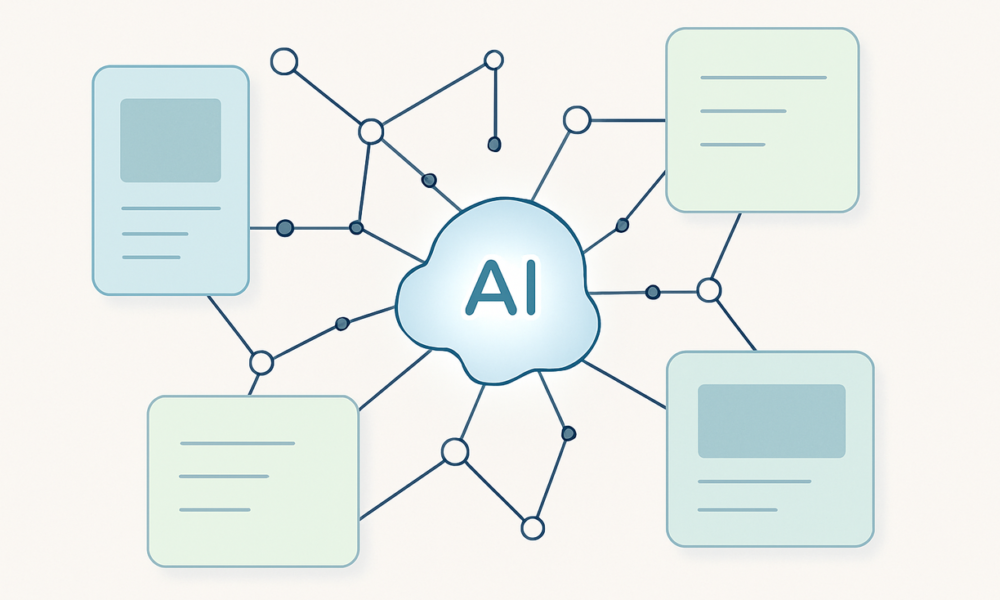
The Impact of AI Knowledge Management Software on Organizational Efficiency
The integration of artificial intelligence (AI) into knowledge management has revolutionized how organizations store, retrieve, and utilize their information assets. By leveraging AI, companies can not only enhance their data processing capabilities but also improve their decision-making and overall operational workflows. This synergy between AI and knowledge management is becoming increasingly critical in the rapidly evolving business landscape, where efficiency and adaptability are key to success. This comprehensive look delves into the ways AI-driven knowledge management impacts organizational effectiveness. Below, we explore the various facets of this technology and its profound implications for businesses.
Understanding AI Knowledge Management Software

AI knowledge management software uses machine learning and natural language processing to streamline how information is organized and retrieved. Unlike traditional systems, AI platforms autonomously organize data, detect trends, and make predictions, reducing manual effort and human error.
With AI, employees can access information through chatbots or voice interfaces, making retrieval faster and more intuitive. Instead of searching databases, users ask questions and get answers instantly.
Key features include semantic search, which understands context, and recommendation engines that suggest relevant content. This ensures information is easy to find and aligned with users’ needs. By employing AI knowledge management software, such as Upland RightAnswers, organizations can facilitate more effective knowledge sharing across different departments and teams.
Enhancing Data Accessibility and Sharing With AI
One of the key benefits of using AI in knowledge management is the enhanced accessibility of data. With information stored in structured and unstructured formats across various systems, traditional retrieval processes can be slow and cumbersome. AI simplifies and speeds up access by organizing data regardless of its format or system.
AI algorithms also excel at categorizing data based on relevance and usage patterns, ensuring the most pertinent information is readily available. This improves data sharing, breaks down silos, and fosters collaboration across organizational units. AI systems can be continuously trained to adapt to changing needs, helping organizations maintain agility and respond quickly to new challenges and opportunities.
AI also strengthens data security. Modern tools use advanced algorithms to detect anomalies, prevent unauthorized access, and protect sensitive information, even as it becomes more accessible to authorized users.
Streamlining Decision-Making Processes Through Intelligent Insights

AI knowledge management enhances data accessibility and refines decision-making. By analyzing large volumes of data and identifying patterns, AI provides actionable insights that might be missed through conventional analysis. These insights help organizations respond proactively to potential issues or capitalize on emerging trends.
AI-driven tools also visualize complex data, making it easier for leaders to interpret. This helps uncover relationships between variables, empowering executives to make decisions grounded in data rather than intuition. It’s predictive analytics further strengthens decision-making by forecasting trends and behaviors, allowing organizations to strategize proactively. This shift from reactive to predictive decision-making can deliver competitive advantages.
AI’s value is especially clear when handling large data volumes where human analysis is impractical. Tasks that once took weeks can now be completed in hours, underscoring the efficiency AI brings to decision-making.
Measuring the ROI of AI Knowledge Management in Organizations
Evaluating the return on investment (ROI) of AI knowledge management is crucial for organizations to justify their adoption and continued use. Initial indicators of positive ROI include reduced time spent on information retrieval, decreased dependency on subject matter experts, and lower incidence of redundant tasks due to improved data availability and organization.
Long-term ROI can be seen in the form of enhanced decision-making effectiveness, which can lead to cost savings, increased revenue, and stronger competitive positioning. As organizations harness the insights generated by AI, they can optimize operations, innovate products and services, and improve customer engagement, all of which contribute to their financial success.
Quantifying the ROI also involves analyzing the impact on employee productivity and satisfaction. Measures such as reduced employee churn, increased output per employee, and improved quality of work all point towards the tangible benefits of integrating AI into knowledge management.
The introduction of AI into knowledge management represents a transformative shift in how organizations handle their intellectual capital. By enhancing information accessibility, refining decision-making, and boosting employee productivity, AI knowledge management lays the groundwork for a more efficient and agile business environment. Overall, its implementation is not merely an IT upgrade but a strategic asset that can propel organizations toward unprecedented levels of operational efficiency and competitive advantage.
